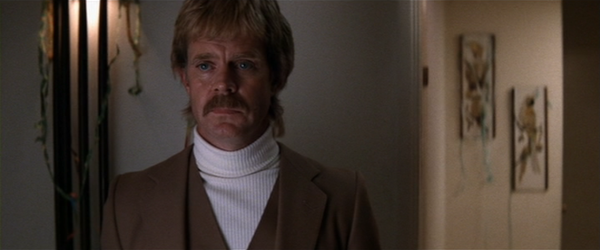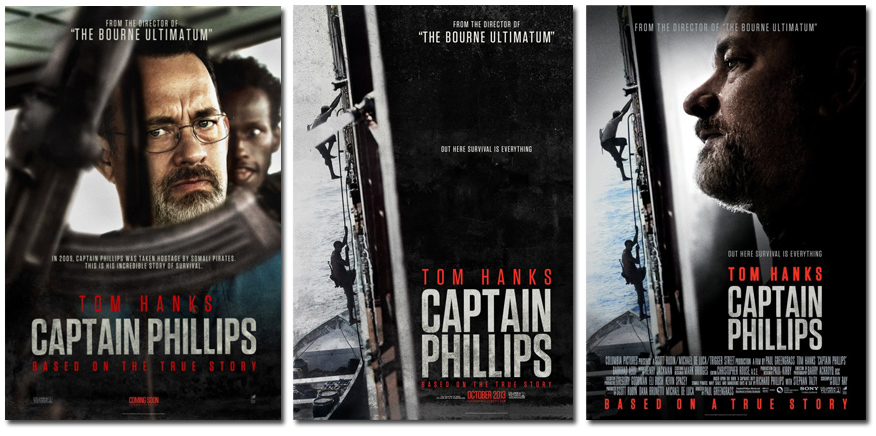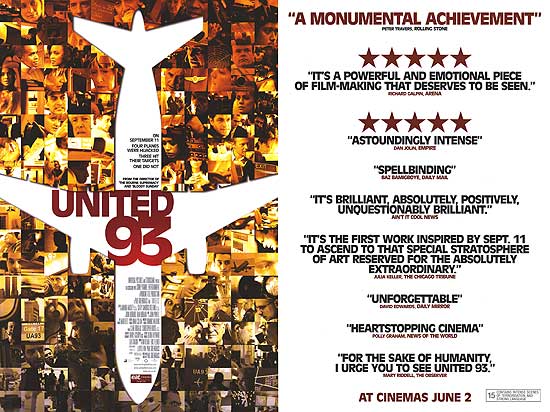Michael C. here. On the Boogie Nights DVD commentary track, Paul Thomas Anderson tells the story of how the audience cheered at the film’s first screening during the scene where William H. Macy’s Little Bill snaps and shoots his adulterous wife. PTA recalls sinking in his seat, wondering how he stepped so wrong that the moment he intended to be a nauseating gut punch was being received as a crowd pleaser. He was relieved moments later when, as he tells it:
 William H Macy's gut punch as "Little Bill" in Boogie Nights
William H Macy's gut punch as "Little Bill" in Boogie Nights
Bill Macy walked out and he shot himself in the face and they shut the fuck up real quick. And they weren’t laughing, and they weren’t cheering, and it was dead silence. And I thought, “Good.” I’ve done my job okay. It’s them that’s fucked up. It’s really the moment where you blame the audience and go, “No, you’re wrong.
The question Anderson asked himself in that theater back in ’97 is one that flares up every time a crowd has the “wrong” response to a movie:
How responsible is the filmmaker when a movie provokes an ugly response from the audience?

The film currently sparking this debate anew is Paul Greengrass’s Captain Phillips, which opens the New York Film Festival tomorrow. When the film's first poster revealed a white Tom Hanks being menaced by a demonic Somali pirate the response was immediate and predictable. Captain Phillips was immediately tagged with the "racially suspect" label. Not because the film itself was racist or presented a skewed portrait of the true story, but because a film where the white hero “stands his ground” against the black invaders will surely be embraced by racists. Even if the consensus is that Captain Phillips is even-handed and honest in its version of events, it already arrives tainted by association. Who wants to stand shoulder to shoulder with some hate-spewing lowlifes celebrating a film where the white heroes beat back a gang of violent gun-toting black criminals.
And if it is that easy for bigots to find validation in the film, isn’t that at least partially on the filmmaker? Shouldn’t they have something in there that shuts those people down, like PT Anderson did in that scene from Boogie Nights?
I understand that feeling, the urge to dismiss a film that earns the wrong kind of praise. Whenever I hear Sean Hannity or his ilk bloviating my immediate impulse is to stand up and declare in the clearest possible terms, “Whatever side that guy is on, I am on that opposite side.” So when he praises Zero Dark Thirty or The Dark Knight as defenses of Bush-era policy my knee-jerk urge is to throw those titles directly under the path of the nearest convenient bus. To be on the same side feels viscerally wrong, regardless if our reasons for standing there are miles apart.
 the first and subsequent posters of Captain Phillips
the first and subsequent posters of Captain Phillips
I have to pause to remind myself, that regardless of how carefully a filmmaker controls a movie’s tone a certain segment of the population is going to read into a film what they want to read into it, filmmaker’s intentions be damned. Context will be disregarded. Subtext will be ignored. Many viewers, more than we would probably like to think about really, want only want to glom onto the most comforting emotional response, and will not hesitate to throw overboard everything that doesn’t fit that view.
Simply put, Bruce Springsteen can write the most searing anti-war song he muster, but that won’t stop crowds fist-pumping along to the chorus of “Born in the USA” while ignoring all the lyrics in between.
This is not to say that artists never share in the blame. Some films end up glamorizing the violence they’re supposed to be satirizing. Some films omit complexity because simplicity is more emotionally satisfying. If Captain Phillips ends up depicting the hijackers as a horde of inhuman monsters, then that gross caricature would be on the film. (I would be surprised if that were the case, considering this is the director who took care in United 93 to locate a few shadings of humanity in the 9/11 hijackers.)

Some would no doubt contend that Greengrass should have flat out not made a film that fans these particular flames, but it is the artist’s job to engage reality as it is, not to pick and choose topics that will avoid stirring up uncomfortable commentary from the dregs of society. Added to which it is itself a subtle form of dehumanization to suggest that artists should deny the complexity of the world and stick to positive, noble portrayals of black people. That way Bagger Vance lies.
Paul Greengrass’s only responsibility is to the truth. He need not take into account the potential response of the bigots and hate mongers of the world, and the rest of us don't need to either as we evaluate the film over the coming weeks.
Previous Burning Questions
You can follow Michael C. on Twitter at @SeriousFilm. Or read his blog Serious Film